Search
Remove Ads
Advertisement
Summary 
Loading AI-generated summary based on World History Encyclopedia articles ...
Search Results
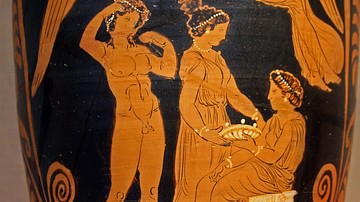
Definition
Furies
The Furies (or Erinyes, sing. Erinys) were creatures from Greek mythology who exacted divine retribution from those guilty of wrong-doing. Crimes which were especially likely to incur their wrath were those involving one's family and anything...
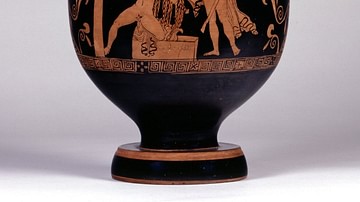
Definition
The Eumenides
The Eumenides is a play written by Aeschylus (c 525 – 455 BCE), the “Father of Greek Tragedy,” the most popular and influential of all tragedians of his era. The Eumenides was the third play of a trilogy, The Oresteia, with the remaining...
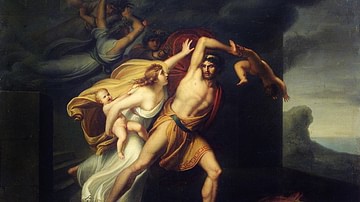
Image
Athamas Taken by the Furies
Athamas Taken by the Furies, painting by Arcangelo Michele Migliarini, 1801.
Accademia di San Luca, Rome.
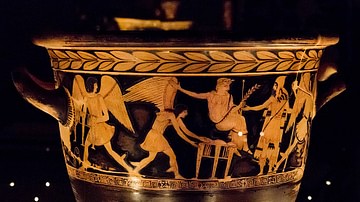
Definition
Harpy
A harpy, also known as a harpyia (pl. harpyiai), is a part-bird, part-woman monster in Greek mythology. Known as the 'Hounds of Zeus,' they were the personification of storm winds and were under the command of Zeus, who would send them out...
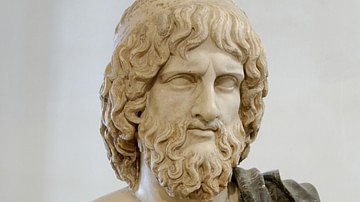
Definition
Pluto
Pluto is the god of the Underworld in Roman mythology. His Greek counterpart was Hades. Pluto chose never to sit on Olympus with the other gods and goddesses, preferring to remain in the Underworld. Family Pluto (Hades) was the son of...
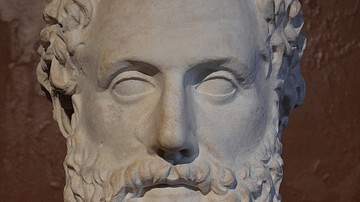
Definition
Aeschylus
Aeschylus (c. 525 - c. 456 BCE) was one of the great writers of Greek Tragedy in 5th century BCE Classical Athens. Known as 'the father of tragedy', the playwright wrote up to 90 plays, winning with half of them at the great Athenian festivals...

Definition
Libation Bearers
The play Libation Bearers was written by one of the greatest of all Greek tragedians Aeschylus (c. 525-455 BCE). Winning first prize at the Dionysia competition in 458 BCE, Libation Bearers was the second play in the trilogy The Oresteia...
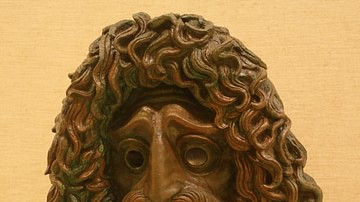
Definition
Ancient Greek Tragedy
Greek tragedy was a popular and influential form of drama performed in theatres across ancient Greece from the late 6th century BCE. The most famous playwrights of the genre were Aeschylus, Sophocles, and Euripides and many of their works...

Definition
Hades
Hades was both the name of the ancient Greek god of the underworld (Roman name: Pluto) and the name of the shadowy place below the earth which was considered the final destination for the souls of the dead. Perhaps the most feared of the...

Video
The Moirai and Erinyes of Greek Mythology
The Moirai and the Erinyes are the Fates and the Furies of Greek mythology. The Moirai, which in Greek means parts or allotted portions, were the three goddesses of fate and destiny. Clotho, the spinner, Lachesis the disposer of lots, and...